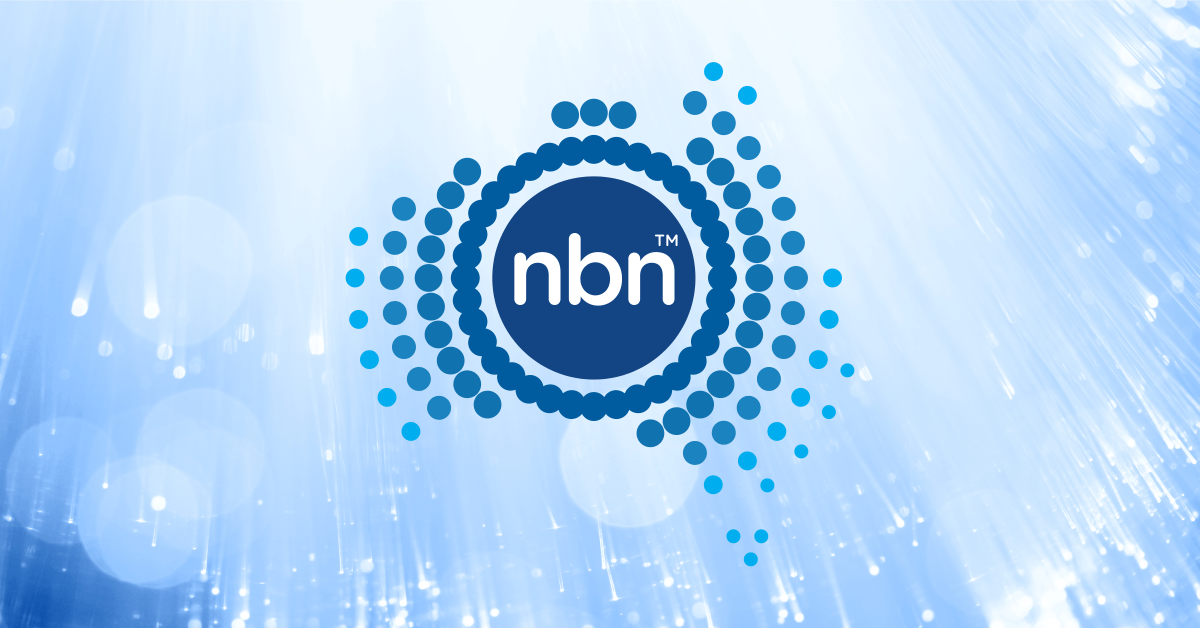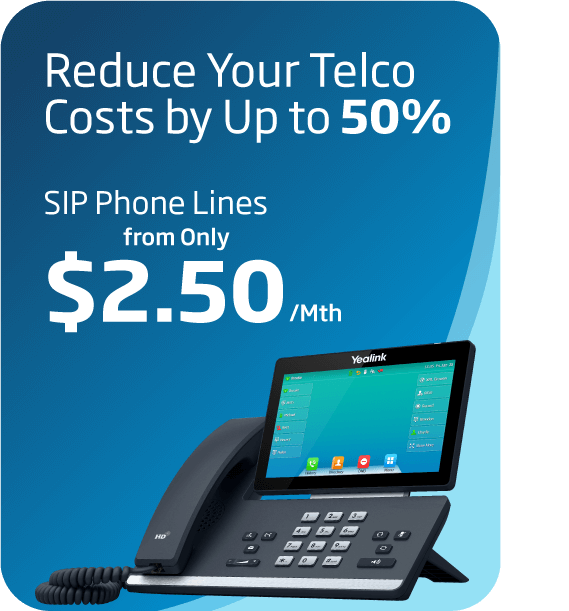NBN vs Fibre
With the NBN rollout finally completed, many business owners are starting to explore the options available for Business Broadband. Apart from Business NBN, there are other future-proof alternatives available such as Business Fibre and NBN Enterprise Ethernet. If you're unsure which service would be the best solution for your business, read on to find out more about the difference between NBN and Fibre to see which one would be the best option for your office requirements.
What is Business NBN?
Small Business NBN is a broadband service transmitted through the NBN infrastructure or via a Fixed Wireless connection. The internet service is available to over 1.5 million businesses across Australia and is a cost-effective way of delivering high-speed internet to businesses with up to 20 users.
What is NBN Enterprise Ethernet?
NBN also offer fibre connection through their Enterprise Ethernet Plans, these have the same benefits as regular fibre however they offer free infrastructure upgrades to business that use their service, this makes it the most accessible business grade fibre connection.
What is Business Fibre?
Business Fibre uses fibre optic cables to transmit data as light signals for ultra-fast internet. Fibre can transmit large amounts of data in short periods of time, meaning the service provides large bandwidth capacity. Fibre is available to office locations where optic fibre infrastructure is readily accessible but can also be built by upgrading the existing NBN infrastructure.
There are multiple connections that could be supplying your internet including:
| FTTP | FTTN | FTTC | FTTB | HFC |
| Fibre to the Premises | Fibre to the Node | Fibre to the Curb | Fibre to the Building | Hybrid Fibre-Coaxial |
| Fibre optic is installed directly to your premises from the nearest fibre node to your building. | Fibre is run to the nearest node and connection to your building is supplied via the existing copper network. | Fibre is run to a distribution point near your building with the final connection done via copper. | For companies with other business in the same building, fibre is run to the building then supplied by the building's existing infrastructure | Fibre is supplied to the nearest node, the final connection is then made by existing pay TV/ cable network infrastructure. |
If you're unsure of whether your business premises is eligible to connect Business Fibre, you can get in touch with one of our expert broadband consultants for a free SQ Check. We'd be happy to assist.
What is the Difference Between NBN and Fibre?
NBN and Fibre are both broadband services that are future proof and provided by Tier 1 carriers. However, there are some differences between the services that may influence your decision on which one is the best for your business needs.
Contention Ratio
Business Fibre has a much lower contention ratio, which means the service isn't shared with other users and the speeds delivered won't fluctuate. Business NBN is a shared service and contention ratios can reach above 50:1. This is due to the infrastructure being shared among multiple users and can lead to congestion, slowing down the speed of your service.
Service Delivery and Availability
Business NBN can be delivered to your premises in multiple ways including via fibre connection, a hybrid of fibre and the traditional copper network, as well as via a fixed wireless connection. This makes Business NBN a widely available broadband option. Business Fibre can only be transmitted through an optic fibre connection. That means only premises that have fibre infrastructure available within their area can connect the service. NBN however have introduced a free infrastructure upgrade meaning, 97% of Australian businesses are eligible for a $0 fibre build, this means that most businesses won’t need to pay for their connection to be upgraded. This makes business fibre more accessible and less of a hassle as the instillation of upgraded infrastructure is done by NBN at no cost to you.
Upload and Download Speeds
Business NBN has variable upload and download speeds, while Business Fibre has set symmetrical speeds (the same upload and download time).
Bandwidth
Business Fibre provides extreme bandwidth with symmetrical speeds of up to 1000/1000 Mbps with a 99.95% Uptime SLA. Business NBN is an "up to" service, meaning that speeds may fluctuate. The highest Business NBN plan available is also the 250/100MB, which may not be suitable for users who heavily rely on digital media, software or cloud storage.
Costs
As Business Fibre is an enterprise-grade connection, the service is dearer than Business NBN with plans starting from $299 per month for 100/100 bandwidth. Although Business Fibre is more costly, the features and benefits of Fibre simply can't be matched by NBN. Business NBN plans start from $59 per month for up to 25/10 Mbps bandwidth. If your business doesn't rely on the internet for many daily operations, business NBN is a low-cost and effective option.
Which Internet Service Do I Pick?
The broadband service that your business should choose should depend on your office requirements and how your business operates. If your business heavily relies on the internet, such as digital marketing, graphic design, or software development; Business Fibre with its high level of reliability and speed may be more suitable. If your business doesn't use the internet for most operational activities, such as retail, construction, or warehousing; Business NBN may be more than sufficient to satisfy your needs. Other factors to consider include the broadband availability in your area and budget.
To find out more about what options are available at your business location, call us on 1300 000 300 to speak to one of our Business Broadband specialists.
You May Also Like
These Related Stories

What are the Different Types of Business Broadband Services?

NBN for Business vs. Enterprise NBN. What’s the Difference?









